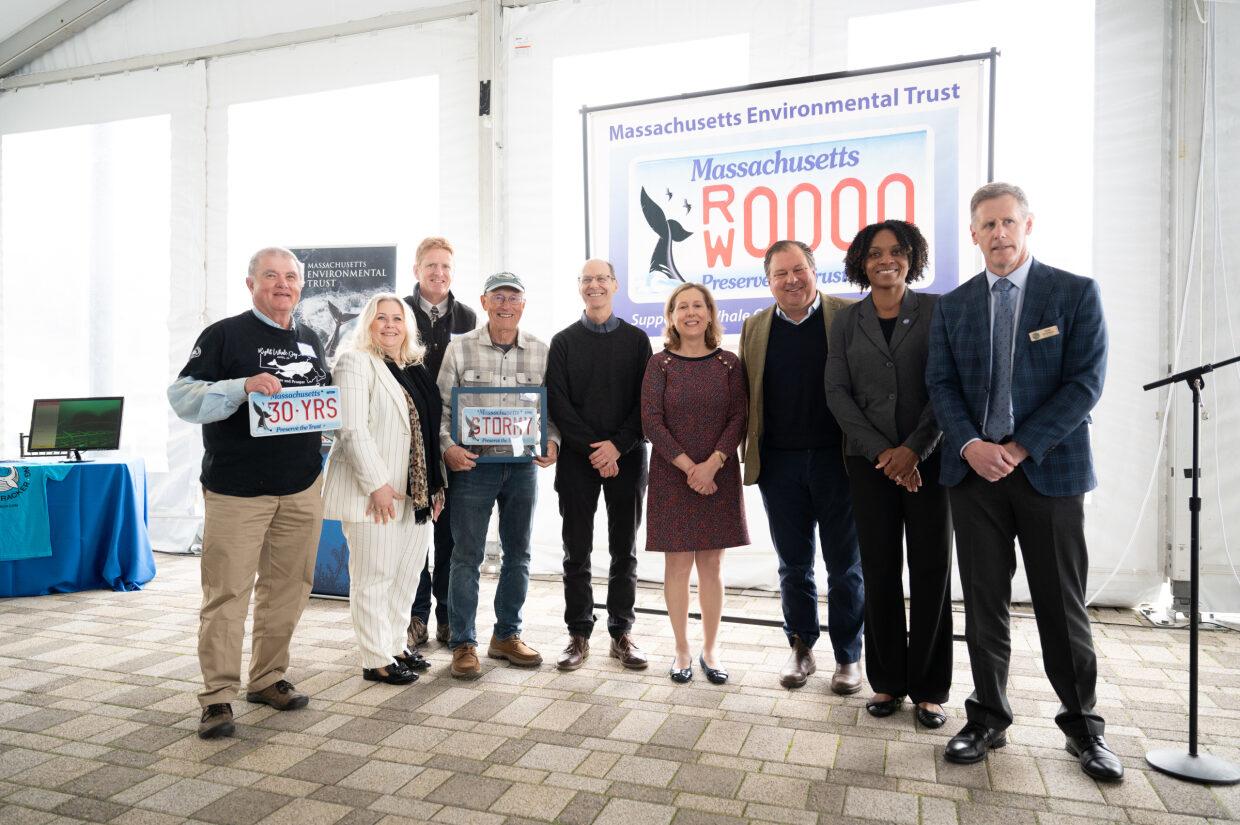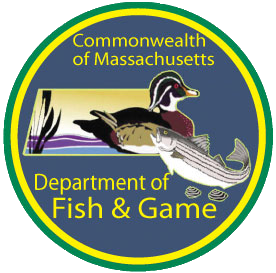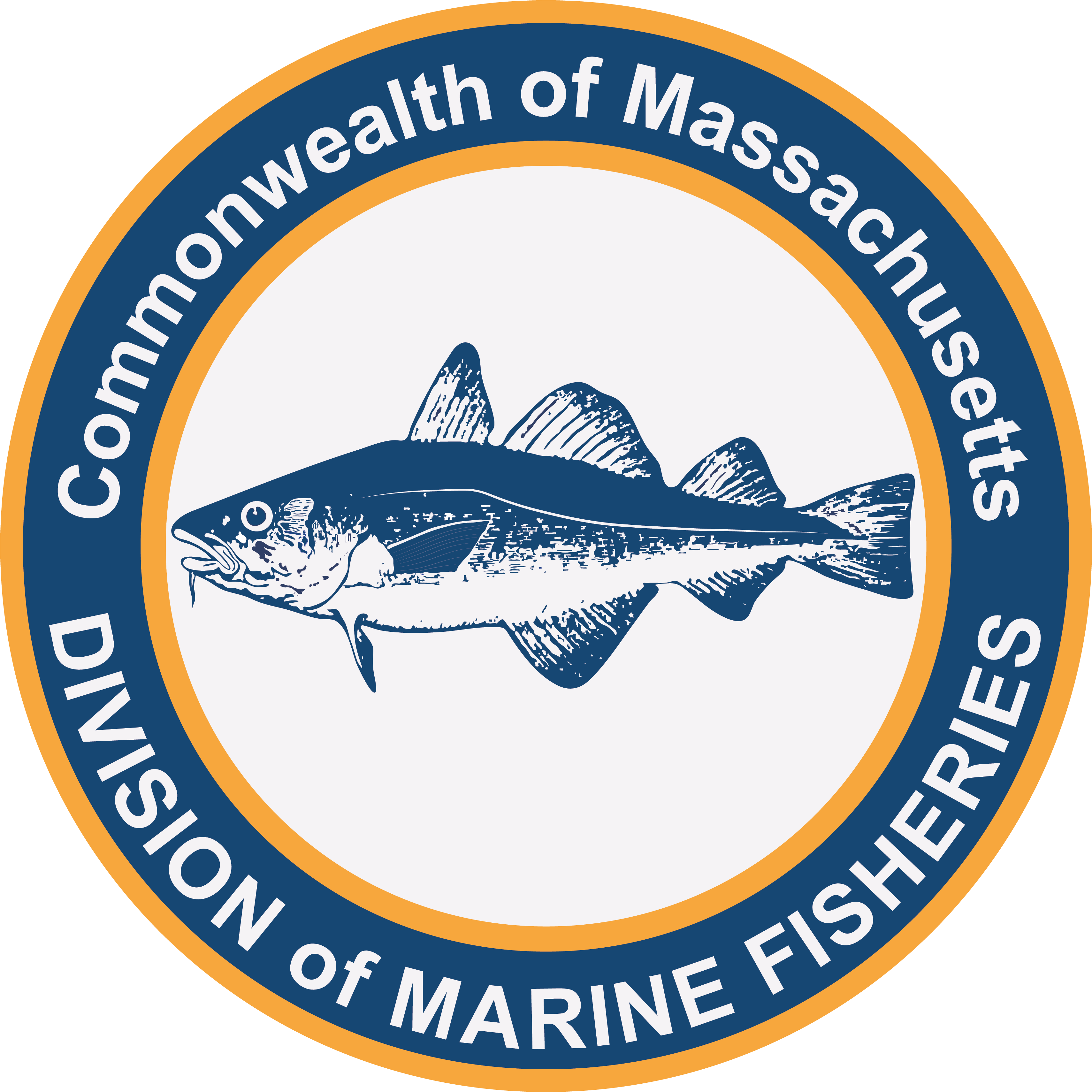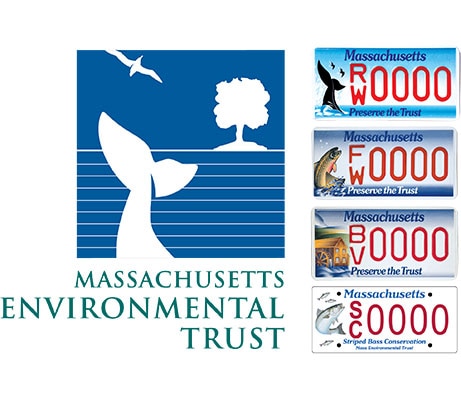- Executive Office of Energy and Environmental Affairs
- Department of Fish and Game
- Division of Marine Fisheries
- Massachusetts Environmental Trust
Media Contact
Danielle Burney, Deputy Communications Director

BOSTON — In an effort to promote the conservation of the North Atlantic Right Whale, Governor Maura Healey declared April 24th as Massachusetts Right Whale Day. The right whale, the state’s official marine mammal, is listed as endangered under the Endangered Species Act. The Healey-Driscoll Administration partnered with the New England Aquarium to celebrate the day and help educate the public about the species, highlight expansive research and continued partnership to conserve right whales, and share ways the public can support these efforts.
“This Earth Week, we are reminded of how our actions and climate change can impact some of our most vulnerable species. The North Atlantic Right Whale is critical to maintaining a diverse and healthy ecosystem,” said Energy and Environmental Affairs Secretary Rebecca Tepper. “As we bring attention to right whales today, the Healey-Driscoll Administration is renewed in our commitment to protecting this species. At the start of this year, we were proud to secure long-lasting federal funding to invest in new, innovative fishing gear and increased research and monitoring of the species. We look forward to putting those funds to work and seeing right whales thrive once again.”
Massachusetts has long been a leader in right whale protection efforts and has the most stringent state regulations to protect right whales in the country, including a three-month closure to fixed gear fishing to prevent entanglements, the mandatory use of weak buoy lines that are designed to break if entanglement should occur, and a March-April speed limit for all vessels in Cape Cod Bay to reduce the risk of ship strikes. Because of this leadership, the Massachusetts Department of Fish & Game’s (DFG) Division of Marine Fisheries (DMF) recently received the NOAA Fisheries “Partner in the Spotlight” Award for implementing measures to reduce right whale entanglements and vessel strikes in state waters.
Additionally, DMF was recently awarded $4.6 million from a congressional appropriation through the Atlantic States Marine Fisheries Commission to expand the division’s nation-leading conservation program for the endangered North Atlantic right whale. DMF will use this funding and an additional $475,000 grant from the National Fish and Wildlife Foundation (NFWF), to bolster the development of innovative fishing gear technologies, increase ongoing research and monitoring, and provide improved fishing gear to lobster industry participants to reduce harm to the right whales. As part of a 5-year program, DMF anticipates receiving more than $23 million from NOAA Fisheries between now and the end of 2028 subject to annual Congressional appropriations.
“Massachusetts has a special responsibility to conserve critically endangered North Atlantic Right Whales--over two-thirds of the remaining 360 individuals visit our waters each season,” said Department of Fish & Game Commissioner Tom O’Shea. “While incredible progress has been made, human impacts and climate change continue to threaten the survival of this species. This is a critical moment for action--our Department is committed to continued partnership with federal, state, and local leaders to accelerate our efforts and ensure the full recovery of this important species.”
"For nearly three decades, our critical research in partnership with the Center for Coastal Studies and Massachusetts Environmental Trust (MET) has allowed us to better understand how right whale populations behave and move in Massachusetts waters. Because of this, we’re able to uphold incredible protections for this species through seasonal fishing closures, speed restrictions, and use of weak rope to dramatically reduce risks of entanglements and ship strikes,” said Division of Marine Fisheries Director Dan McKiernan. “This is all possible thanks to Massachusetts lobstermen who have made significant sacrifices and are our closest collaborators in devising practical solutions to conserve right whales and sustain this important industry.”
This year also marks the 30th anniversary of the Massachusetts Environmental Trust’s (MET) Right Whale/Roseate Tern license plate, the first philanthropic specialty license plate established to benefit conservation. Over the last 30 years, the Trust has awarded more than $28 million to 800 projects that have supported the protection of endangered marine animals and restoration of critical aquatic ecosystems.
Early funding supported a groundbreaking study that demonstrated the effectiveness of aerial and surface surveys to better understand right whale populations and movements. The research is now funded by NOAA and carried out by the Center for Coastal Studies and remains critically important to inform policy and regulations to reduce entanglement risks and ship strikes. Today, MET continues to fund right whale research and recovery---including supporting at-sea disentanglements and rescues, continued research to better understand population abundance and distribution, and collaboration with federal, state, non-profit, and private partners to devise innovative solutions to conserve this important species.
“Massachusetts Environmental Trust is proud to have led the way leveraging public support for conservation to respond to some of our greatest environmental challenges---biodiversity loss and pollution of our waters,” said MET Board & Chair RJ Lyman. “Over the last three decades, our beloved specialty plates have funded hundreds of projects that have had immense benefits to both wildlife and people. No work is more important to the Trust’s mission than our right whale research and recovery work---we’re proud to be here today with our many partners to highlight the progress we’ve made, and the critical need for continued action.”
“Each North Atlantic right whale holds a rich legacy, and it is our role to remember, acknowledge, respect, and protect these animals,” said Dr. Letise LaFeir, chief of conservation and stewardship at the New England Aquarium. “Today and every day, we encourage the public to learn more about this critically endangered species—and how human impacts, particularly vessel strikes and entanglements, are causing the right whale population to decline.”
“Saving the right whale from extinction is an epic challenge, and one that summons us to action because our waters host such a substantial number of a limited population for several months,” said Senate Minority Leader Bruce Tarr (R-Gloucester). “Through an ongoing commitment, innovation, and sacrifice by the commercial fishing industry, Massachusetts is rising to the challenge, and taking the actions our stewardship demands.”
"As newly elected Chair of the Legislative Coastal Caucus, and as a Representative from a coastal-centered district, I am honored to be a part of this important day celebrating the North Atlantic Right Whale," says Representative Kathleen LaNatra (D-Plymouth). "In these positions, I am committed to ensuring continued conservation of this amazing species, as well as ensuring that our coastal ecosystems remain diverse and healthy for generations to come."
During the event, state legislators presented a special citation to Center for Coastal Studies’ Right Whale Ecology Program Director Stormy Mayo to recognize his 48-year career pioneering right whale research and conservation in Cape Cod Bay. Mayo also received a commemorative right whale license plate.
“Stormy has had a distinguished 48-year career at the Center for Coastal Studies. He co-founded the organization in 1976 alongside Dr. Graham Giese and the late Dr. Barbara Shuler Mayo. His leadership in the Right Whale Ecology Program significantly advanced the study and protection of the endangered North Atlantic right whale and aided in the designation of Stellwagen Bank as a National Marine Sanctuary and in spotlighting Cape Cod Bay as a crucial right whale habitat,” said Center for Coastal Studies Executive Director Rich Delaney. “A pioneer in the development of whale disentanglement techniques, Stormy's work also helped establish the Marine Animal Entanglement Response program, now a leader in global whale rescue efforts.”
###


